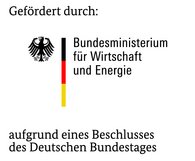Development of innovative procedures to support the harvesting modelling and monitoring of plant condition and growth conditions using high resolution remote sensing data in GEOGLAM and Copernicus - GLAM. EN
Funded by: BMWI
Duration: 01.09.2016 – 31.08.2018


The project "Global Agricultural Monitoring. The German experiment "(GLAM. DE) is dedicated to the challenge of developing local, viable services in the agricultural sector. The core scientific objective of the project GLAM. DE is the development of innovative methods for agricultural monitoring based on the high-resolution RapidEye/Sentinel-2 missions and TerraSAR/TanDEM-X/Sentinel-1. The objective is to focus on food security and food safety. The harvest modelling issues targeted in GEOGLAM and Copernicus by monitoring of plant condition and growth conditions. Specifically, it is about the derivation of vegetation and soil parameters for the optimization of yield model for wheat and corn that can be used by public users. The so-called Light Use Efficiency Model aims at the quantification of radiation turnover for biomass growth.
The project is structured into four work packages:
- WP 1 - International Cooperation, is of a superordinate nature, since it includes JECAM sites. should. Concepts of this GEOGLAM activity are developed, which should support the CAL/VAL measurement network. DEMMIN, but possibly also other German sites, to bring them closer to JECAM. to this also includes a further value-adding of the data of the DEMMIN measurement network.
- WP 2 - consists of the three important technical APs, which are based on the product development "Soil parameters". (AP 2.1),"Biomass" (AP 2.2) and "Yield modelling" (AP 2.3).
- WP 3 - serves to develop an implementation strategy for the use of data products in local and regional networks. services and prototypical service development.
- WP 4 - Coordination of the project.

